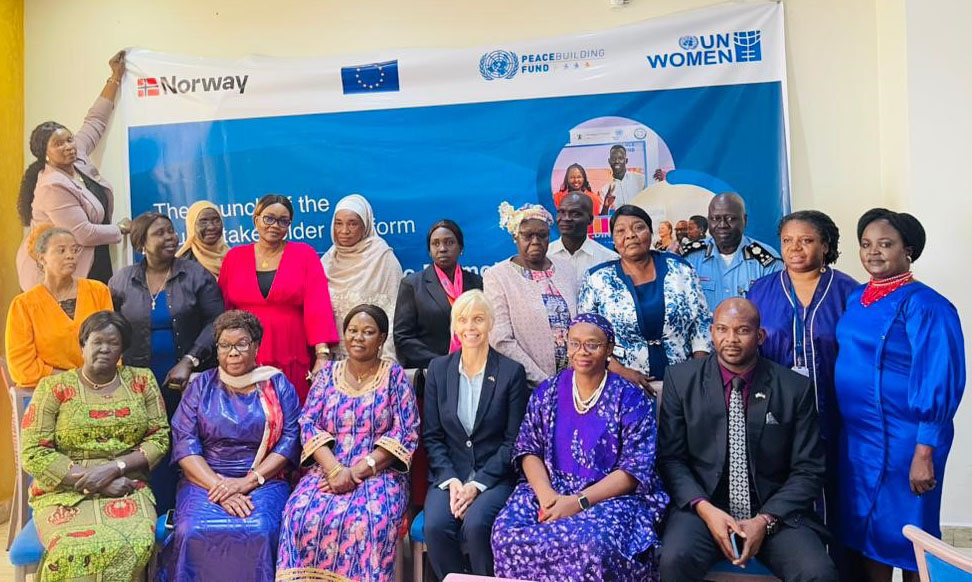By Kidega Livingstone
In post-conflict or fragile states, women’s active inclusion in government can significantly strengthen the transition to democracy, the Deputy Country Representative for UN Women, Rukaya Mohammed said.
Speaking at the launch of a multi-stakeholder platform, Rukaya expressed that women’s participation can increase the legitimacy of emerging institutions, broaden the political agenda, and promote consultative policymaking.
“You cannot leave out the majority of the population in this dimension,” she said, emphasizing that women’s participation in leadership, political decision-making, and the peace process is critical for sustainable peace.
Rukaya noted that women face various barriers that limit their effective representation and influence in the peace process.
“The research shows that political participation and leadership in a fragile environment, particularly during democratic transition, are critical to sustaining lasting democratic institutions,” she said.
The UN Women official also cited studies showing that countries are less likely to use violence when facing an international crisis when the percentage of women in parliament increases by 5 percent.
“Countries with more women in government enjoy a better standard of living across multiple sectors of society, leading to increased peace and stability,” she added.
Rukaya identified patriarchal structures that entrench gender inequality and disregard for women’s rights as some of the hindrances that need to be addressed to enable meaningful participation of women.
A study in Juba, South Sudan, by Women International Peace, revealed that sustainable peace in the country depends on empowering women and overcoming obstacles to their participation in peace processes.
Mary Nawi Martin, the Minister of Parliamentary Affairs, acknowledged that women leaders in the government are concerned about the gaps in education, health, legal aid, and legislation that affect women, which in turn impacts the country’s development.
“We need to start enhancing dialogue within ourselves and between traditional leaders, faith-based organizations, civil society organizations, and communities to promote peace and appropriate intervention,” she said.
“Women often face barriers to their participation in the electoral process as voters, candidate journalists, and other capacities; their participation frequently undermines culture and social norms.”




